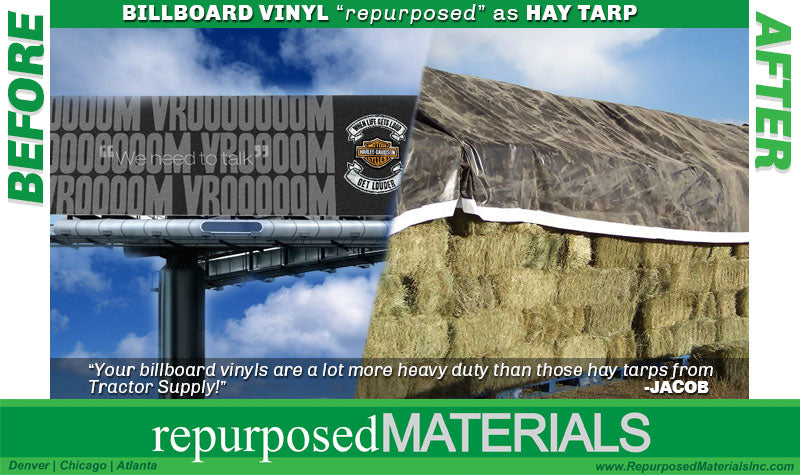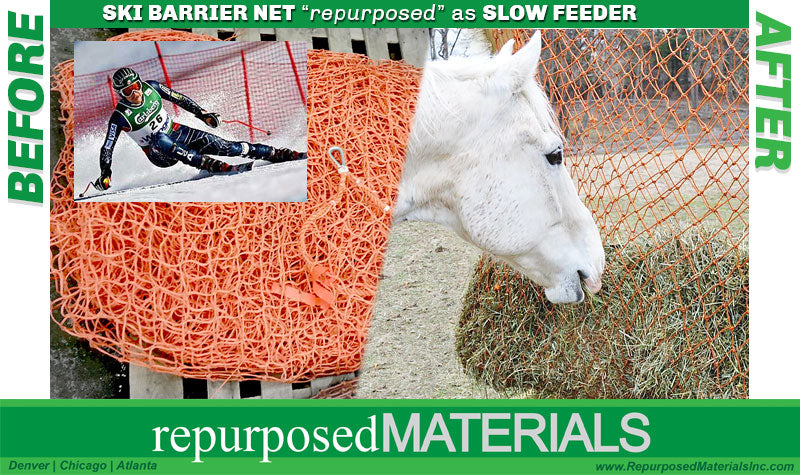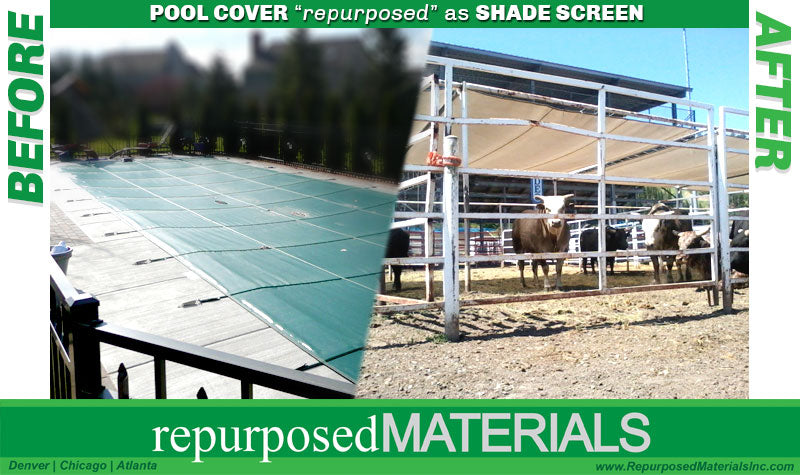My REPURPOSED Story

From old fire hoses to fishing nets, vinyl billboards to bowling alley floors, Repurposed Materials sells all sorts of cast-off industrial goods.
It’s the ultimate old-fashioned green business -- selling something that would otherwise end up in the landfill, finding new uses for items at the end of their lives.
Everything in Damon Carson’s warehouse could have ended up in the landfill. But this green entrepreneur hawks millions of pounds of people’s junk every year, helping companies both save green and go green since 2011. Disposing of cast-off goods is expensive, and it’s not eco-friendly. Businesses big and small appreciate the chance to sell off stuff they don’t need to Repurposed Materials.
Carson and his employees are always on the lookout for odds and ends that are generic, versatile and adaptable. Usually, Carson has no idea what a piece’s other uses might be ’til a customer calls him up.
For example: Plastic 55-gallon drums were transformed into enrichment toys for polar bears. Wooden flooring from a gym became wall siding. Bowling alley lanes were refashioned into tables and chairs. Some creative types reworked a firehose into a hammock for a mountain lion. A pool cover was refigured into a kennel shade. And a parachute turned into a pavilion roof.

ECOlunchbox founder Sandra Ann Harris caught up with Carson to learn more about his clever business on repurposing items, goods, and products to sell and how everyday folks can tune up their creativity and tap into repurposed materials.
Reusing is a traditional concept our grandparents practiced intuitively, but it’s in vogue again, now. Do you think of your work as part of the green, eco-friendly economy?
Forty years ago, people knew that what we’re doing was definitely part of the three-sided triangle -- reduce, reuse and recycle. I’m most interested in the middle one: Repurposing is a cousin to reuse.
I get asked all the time, “Damon, did you invent repurposing.” I’m like, “Did you have parents or grandparents who lived through the Depression, or have you ever been to a third-world country?” We’ve lost this repurposing gene because we live in the land of abundance. We’re just used to getting on Amazon and click, click, click, we get exactly what we want. It just gets bred out of us to be resourceful and be innovative in a material sort of way.
Do you feel like your company is making a difference? If so, how much?
Last year, we diverted about 5 million pounds from the landfill. We thought, Hey, don’t throw that away! We can find another way to use that! Basically, our business is built on the premise that even though something is obsolete to the primary industry, we know we can sell the stuff for use in many other ways.
Typically, the item is taken for a second purpose. We don’t chip, melt, shred or otherwise change the product, as it was used for in its first purpose.

Who does your e-newsletters? They’re super readable. How do you get so many customers to send in cute pictures and stories? Are you the king of social media?
I do the newsletter. We work hard soliciting stories. A vast majority of our buyers don’t even send us photos. If they all sent us photos, the newsletter would be three times better. Our newsletter goes out three times a week to over 150,000 people across the United States in a wide array of industrial mixes. Forestry people, cranberry farmers, architects, facilities managers, etc. .. You never know when one industry’s castoff is going to be a solution for another industry.
Any advice for people who’d like to get their repurposing gene fired up?
If you want to be a repurposer, especially at an individual scale, you want to develop a mentality when you’re problem solving that you’re looking for attributes, characteristics and engineering function. Do you need something hollow? Magnetic? Waterproof? Windproof? Then, you go out and look for used materials that can be substituted for purpose-built new products. If you need something that’s waterproof, for example, you can go buy it new, or you can think of what industry has a waterproof textile that you can substitute to cover your haystack or firewood pile.

Keep Carson’s advice in mind next time something around your house breaks (and you know it will). Instead of heading to the hardware store, ask yourself: What can you reuse? And if you don’t have something at the ready, check out freebies your friends and neighbors would love to get rid of. Online sites like Next Door and Craigslist.com are treasure troves for repurposers!



